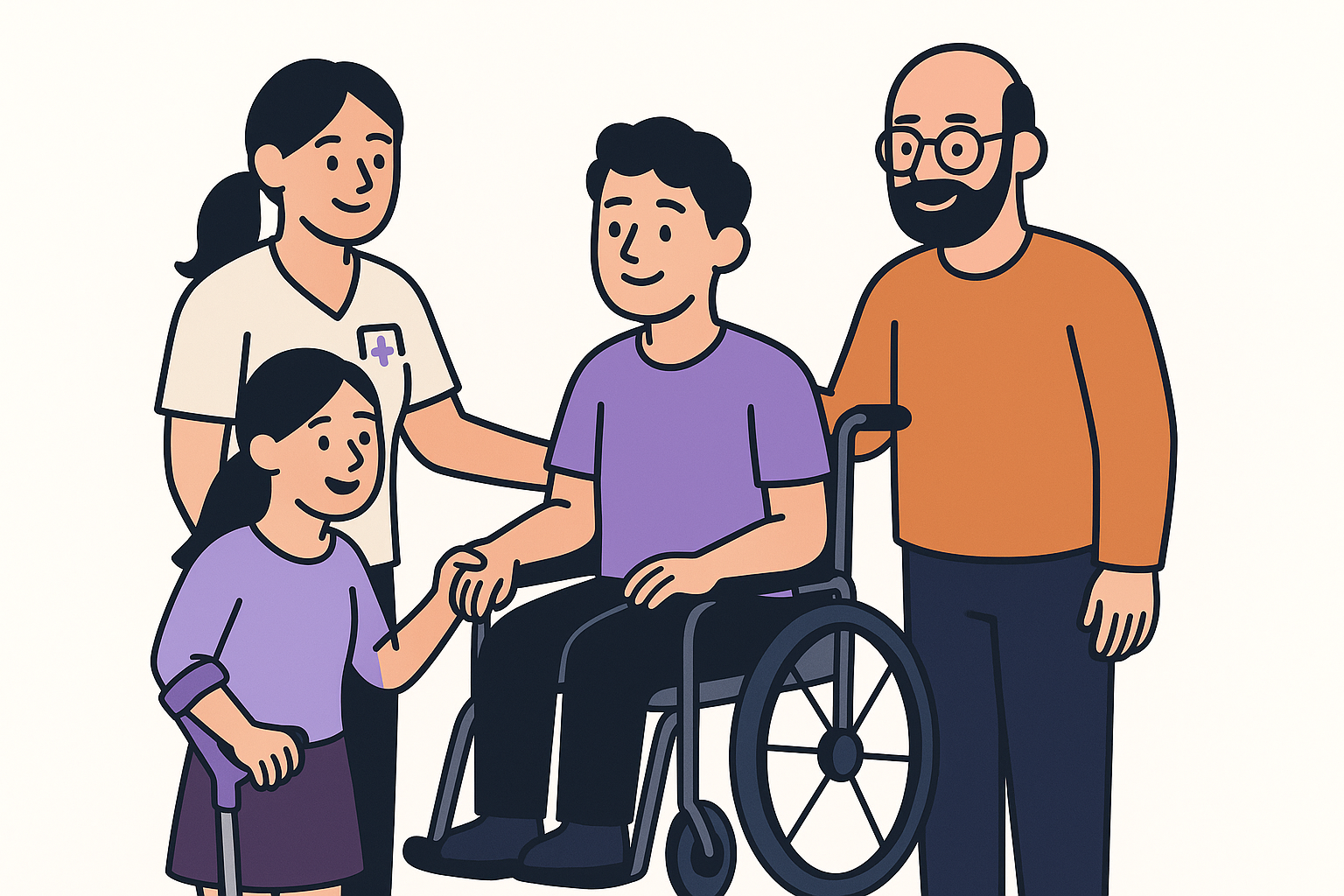The National Disability Insurance Scheme (NDIS) will fund reasonable and necessary support that helps Australians with disability work towards their goals, participate in daily living and contribute to the community. But what exactly does “reasonable and necessary” look like in practice? And which supports sit outside the NDIS’s remit?
Below is a straightforward guide to the three NDIS support budgets—Core, Capital and Capacity Building—plus real-world examples of how Advance Care Agency delivers these services.
1. What Makes a Support “NDIS-Funded”?
1. Directly related to your disability
2. Value for money when compared with alternatives
3. Effective and beneficial—supported by evidence
4. Not more appropriately funded by another government system (e.g., Medicare, education or housing)
5. Aligned with your personal goals in the NDIS plan
Every support must satisfy these criteria before the NDIA will add funding to your plan.
2. The Three NDIS Support Budgets
A. Core Supports
It helps you complete everyday activities and keep life ticking over.
Category: What it covers, Advance Care Agency examples
Assistance with Daily Life: Personal care, meal prep, house tasks, In-home carers, overnight respite
Consumables: Continence items, low-cost A, T Ordering & delivery service
Transport: Travel to work or activities, Subsidised trips with trained drivers
Assistance with Social & Community Participation: Support worker hours, entry fees, Community outings, hobby groups
B. Capital Supports
Pays for one-off or higher-cost investments.
Category: What it covers, Advance Care Agency examples
Assistive Technology (AT) Wheelchairs, communication devices, smart-home tech, OT assessments, supplier quotes, installation
Home or Vehicle Modifications & SDA Ramps, bathroom remodels, Specialist Disability Accommodation Project management with licensed builders
C. Capacity Building Supports
Builds skills and independence so you rely less on paid help over time.
Category Outcomes: Advance Care Agency programs
Support Coordination: Navigate services, set up agreements, Utilise Bilingual coordinators, and develop crisis plans.
Improved Living Arrangements: Move or stay safely at home. Tenancy support, accommodation search.
Increased Social & Community Participation: In skill-building courses, mentoring in Art therapy, and adaptive sports coaching.
Finding & Keeping a Job: Career advice, on-the-job support, Work-readiness workshops, employer liaison
Improved Relationships: Positive-behaviour coaching, family training, PBS plans, siblings’ workshops
Improved Health & Wellbeing Exercise physiology, dietetics, Gym programs, allied-health team
Improved Learning Support to access TAFE/uni Study coaching, assistive tech training
Improved Life Choices (Plan Management): Paying invoices and budget reports, Partner plan managers—no out-of-pocket cost.
Improved Daily Living: Therapies to boost independence, OT, speech pathology, life-skills coaching
3. What the NDIS Won’t Fund
1. Daily living costs, including rent, groceries, and utilities.
2. Medical or hospital expenses that Medicare should cover
3. School tuition or curriculum costs are covered by the education systems
4. Anything illicit or high-risk (e.g., gambling, recreational drugs)
5. Supports that don’t correlate to your disability or are primarily for family convenience
Knowing these boundaries helps you avoid rejected claims and keeps your budget on track.
4. How the Advance Care Agency Maximises Your Funding
1. Plan Kick-Off Session – We unpack your goals, explain each budget line, and flag quick wins.
2. Flexible Service Menu – Choose individual supports or bundles that span Core, Capital, and Capacity Building.
3. Allied-Health Network – OTs, physios, nurses and behaviour specialists under one roof.
4. Real-Time Budget Monitoring – A secure portal displays spending and remaining funds 24/7.
5. Transparent Pricing – No hidden coordination or exit fees—ever.
5. Steps to Access the Right Supports
1. Set Clear Goals – Ensure your plan aligns with your actual objectives.
2. Collect Evidence – Functional assessments, quotes and therapy reports strengthening your funding requests.
3. Attend Plan Meeting – Bring a support person or your Advance Care Agency coordinator.
4. Compare Providers – Look for registration, experience and cultural fit.
5. Review and Adjust – Track usage and request a plan reassessment if life circumstances change.


